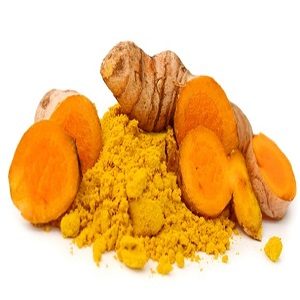
Turmeric for Joint Pain.
Regardless of the mechanism by which curcumin elicits its effects, it does appear to be beneficial to several aspects of arthritis, as suggested by a recent systematic review and meta-analysis that concluded: This systematic review and meta-analysis provided scientific evidence that 8-12 weeks of standardized turmeric extracts (typically 1000 mg/day of curcumin) treatment can reduce arthritis symptoms (mainly pain and inflammation related symptoms) and result in similar improvements in the symptoms as ibuprofen and diclofenac sodium. Therefore, turmeric extracts and curcumin can be recommended for alleviating the symptoms of arthritis, especially osteoarthritis
Read the full article here Recipes with Turmeric
From our list of herbs and spices, the following are recommended for Arthritis:
American Ginseng Asparagus Root Barberry Root Black Cohosh Black Seed Oil Bladderwrack Boswellia Bromelain Bupleurum Root Burdock Root Capsicum Carrot Cats Claw Cayenne Celery Seed Chamomile Chondroitin Sulfate Citrus Bioflavonoids Curcumin Curcumin and Turmeric Root Devils Claw Fenugreek Feverfew Flaxseed Ginger Ginkgo Biloba Glucosamine Sulfate Grapeseed Green Tea Hemp Oil Honeysuckle Horsetail Juniper Berry MSM Nettle Omega-3 Fatty Acids Queen Of The Meadow Quercetin Sarsaparilla Sea Cucumber Turmeric Turmeric Root Wild Yam Willow Willow Bark Yucca
See below for more details on each remedy.
Natural Cures and Remedies for Arthritis
In another study Zurier doubled the dosage of GLA, giving fifty-six patients either 2.8 grams daily of the supplement or placebos for six months. This higher dosage resulted in significant improvements, at least a 25 percent improvement in four of eight measures of rheumatoid arthritis severity. For a second six-month period, Zurier gave GLA to all of the patients, and improvements were noted across the board. The group originally given GLA continued to improve over the course of a year, with more than three-fourths of the patients benefiting from improvements in their arthritis symptoms.

The impressive anti-inflammatory properties of vitamin E: It lowers levels of CRP and many other pro-inflammatory compounds, and it reduces the risk of coronary artery disease. In addition, vitamin E supplements can, for many people, ease the symptoms of rheumatoid arthritis, allergies, and Alzheimer’s disease. In the next chapter you will read about three nutrients that play a central role in maintaining and rebuilding tissues in the body.
According to Loren Cordain, Ph.D., a researcher at Colorado State University, lectins also might trigger symptoms of rheumatoid arthritis in some people. Lectins are a family of plant proteins found primarily in legumes, but also in wheat and rice. Like gluten, lectins may cause an inflammation of the gut, leading to a more generalized immune response. Temporarily avoiding lectin-containing foods may confirm a sensitivity to them.
Helps release toxins, relieves gout Whenever a plant focuses on smaller spaces in the body and the connective tissues found there, it often has the ability to sweep those spaces clean of toxic build-up. e plant knows that there must be an out-with-the-old and in-with-the-new to correct imbalances of form and function. One example is the toxic accumulation of uric acid in small joints, which causes gout. Queen of the meadow works on multiple levels to accomplish many things, including inflammation reduction, pain support, and the draining of toxicity through natural pathways such as urination. It is also helpful for arthritis, rashes, rheumatism, and overall fatigue. Eases diarrhea e astringent action of queen of the meadow is helpful with diarrhea and loose.
Fish oils actually help rebuild articular cartilage. Bruce Caterson, Ph.D., of Cardiff University, Wales, led a team of molecular biologists who discovered specifically why fish oils reduce inflammation and inhibit the breakdown of cartilage, one of the characteristics of osteoarthritis. Caterson first determined that chondrocytes, one of the key types of cells forming cartilage, readily absorbed alpha-linolenic acid (the parent omega-3 fatty acid) and displaced other fatty acids in the process. The same thing happened when he grew chondrocytes with EPA and DHA. But significantly, all of the omega-3 fatty acids deactivated aggrecanases, a family of enzymes known to break down cartilage. The omega-3 fatty acids also stopped the genetic programming that increased levels of pro-inflammatory compounds, including interleukin-1 (IL-1), tumor necrosis factor alpha (TNFa), and cyclooxygenase-2 (Cox-2).
-
- American Ginseng
- Asparagus Root
- Barberry Root
- Black Cohosh
- Black Seed Oil
- Bladderwrack
- Boswellia
- Bromelain
- Bupleurum Root
- Burdock Root
- Capsicum
- Carrot
- Cats Claw
- Cayenne
- Celery Seed
- Chamomile
- Chondroitin Sulfate
- Citrus Bioflavonoids
- Curcumin
- Curcumin and Turmeric Root
- Devils Claw
- Fenugreek
- Feverfew
- Flaxseed
- Ginger
- Ginkgo Biloba
- Glucosamine Sulfate
- Grapeseed
- Green Tea
- Hemp Oil
- Honeysuckle
- Horsetail
- Juniper Berry
- Msm
- Nettle
- Omega-3 Fatty Acids
- Queen Of The Meadow
- Quercetin
- Sarsaparilla
- Sea Cucumber
- Turmeric
- Turmeric Root
- Wild Yam
- Willow
- Willow Bark
- Yucca
The recent research on glucosamine, chondroitin, and vitamin C and their roles in the formation of cartilage in osteoarthritis, is very persuasive,. These nutrients help hold glucosamine, chondroitin, and vitamin c.
